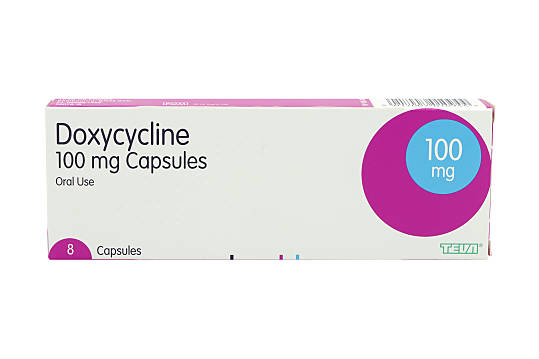Chlamydia symptoms in women

Medically reviewed by
Dr Babak AshrafiLast reviewed: 09 May 2022
As a woman, chlamydia can impact your menstrual cycle or cause you to bleed outside of the usual time when you have your period. You may also find it painful to have sex.
You can get chlamydia whether you’re a man or woman if you’ve had unprotected sex. The infection starts in the genitals but can spread if left untreated. Untreated chlamydia can put you at risk of complications such as pelvic inflammatory disease (PID).
Chlamydia is a sexually transmitted infection (STI). Only condoms can protect you against STIs. Using condoms creates a physical barrier between you and the infection. Other methods of birth control cannot do this, like the contraceptive pill.

What is chlamydia?
Chlamydia is one of the most common STIs in the UK. It is caused by the bacteria Chlamydia trachomatis and can affect both men and women.
You may not always get symptoms if you have chlamydia. Around 70% of women and 50% of men that get chlamydia do not have any symptoms. This is why it’s important to get tested for any STIs after you’ve had unprotected sex. Chlamydia can be spread through vaginal sex, oral sex or anal sex.
If left untreated, chlamydia can lead to complications in women. The infection can spread to your cervix, urethra or fallopian tubes and cause damage in these areas. This can lead to pelvic inflammatory disease (PID). Other complications include being at risk of ectopic pregnancies or infertility.
Symptoms of chlamydia in women
The symptoms of chlamydia in women include:
- pain when urinating
- abnormal discharge from the vagina or anus
- pain in your tummy
- pain or bleeding when having sex
- bleeding in between periods
These symptoms do not mean you definitely have chlamydia. If you get these symptoms sometime after having unprotected sex, there’s a chance you might have an STI. In this case, it’s best to do an STI test. You can speak to your doctor or sexual health clinic to arrange this. You can also request a chlamydia test from ZAVA without needing to make an appointment.
Changes in vaginal discharge
Changes in your vaginal discharge can indicate a yeast infection, an STI or natural changes in hormone levels during your menstrual cycle.
It’s normal to have clear or white coloured vaginal discharge. Your vagina needs to keep itself lubricated, protecting you against bad bacteria. Your vaginal discharge will get more slippery and look whiter when you're ovulating.
Chlamydia can cause spotting between your periods, leading to brown, red or pinkish vaginal discharge. You may also get a yellow, foul smelling vaginal discharge if you have chlamydia.
Certain infections can change the environment of your vagina and make you more prone to get STIs like chlamydia. This includes infections like bacterial vaginosis.
Thick, white vaginal discharge can be a sign of thrush. Thrush is a yeast infection that is treatable with antifungal medication.
Burning sensation when urinating
Chlamydia can cause a burning sensation when you pee. This might feel painful or uncomfortable.
The infection in your urine can lead to inflammation in your urinary tract. If left untreated, this infection can spread to your kidneys. If you have a kidney infection, you’ll need antibiotic treatment from the hospital.
A burning sensation when you pee is also a symptom of a urinary tract infection (UTI). If you test negative for chlamydia or other STIs and still have this symptom, speak to your doctor. They may recommend you take antibiotics for a UTI.
Painful sexual intercourse
Having chlamydia can make it painful when having sex. The infection can lead to irritation or inflammation in your vagina. When having sex, this can exacerbate this inflammation and make the experience painful, even if you are using lubricant. You may also have some bleeding after sex if you have chlamydia.
Chlamydia can also lead to pelvic inflammatory disease (PID) which causes inflammation deep in the pelvis. As you use the muscles in your pelvis when having sex, it can be painful.
You can get treated for chlamydia and wait for the infection to be completely gone before you have sex again.
Pain in the lower abdomen
Chlamydia can cause pain in the lower abdomen. This pain might feel like a dull ache or even a sharp cramp. The muscles and nerves in your pelvis are connected to your back, so you might also feel pain in your lower back.
As the infection spreads inside your tissues, the inflammation can cause these types of pain. You can take over the counter painkillers to manage this pain while you get treatment for chlamydia.
Bleeding between periods
Chlamydia can cause bleeding or spotting between your periods. This bleeding can be heavy or light depending on how much the infection has spread. If left untreated, chlamydia can have an impact on your menstrual cycle and make it difficult for you to get pregnant.
Inflammation of the cervix (cervicitis)
Chlamydia can cause inflammation of the cervix, also known as cervicitis.
Your cervix is a cylindrical tube that connects your uterus to your vagina. As they are connecting, many infections that are in the vagina can spread to the cervix. If you have cervicitis, you may notice pus in your discharge or have pain in your pelvis. You may also have bleeding between your periods or after having sex.
Treatment for chlamydia works to kill the bacteria that causes the infection. Once the bacteria is removed, your cervix will heal itself over time.
How is chlamydia diagnosed?
Chlamydia is diagnosed either with a urine sample or a vaginal swab test. Urine sample tests are not as accurate for women as they are for men.
Our chlamydia test kit comes with all the materials you need to take the test. You can complete your sample from the comfort of your own home and send it to our lab in a prepaid envelope. You'll get the results within 2 to 3 working days. The results will be sent to your confidential ZAVA account. We will not share your results with anyone else.
If you test positive for a chlamydia infection, it’s a good idea to let any sexual partners know. They should get tested themselves and treated if they also test positive.
Treatment options for chlamydia
Antibiotics are used to treat chlamydia. Doxycycline is the main antibiotic used for chlamydia treatment. Doxycycline works by stopping the bacteria from reproducing and growing. Your body will then clear the bacteria from your system.
You can request doxycycline treatment from ZAVA if you have a positive chlamydia test result. Doxycycline 100mg capsules are taken twice a day. You should finish the course of antibiotics to clear the infection completely.
Keep in mind that doxycycline can make your skin more sensitive to sunlight. You should avoid direct sunlight or using sunbeds on your skin while taking doxycycline.
If you are pregnant or are allergic to doxycycline, speak to your doctor or sexual health clinic. They may suggest an alternative antibiotic, such as amoxicillin or azithromycin.
What happens if chlamydia is left untreated?
If chlamydia is left untreated it can lead to serious complications. As the infection spreads, it can affect your urinary tract, pelvic tissue and reproductive system. As a woman, untreated chlamydia can lead to difficulties in having a baby.
Fertility issues
Untreated chlamydia can lead to fertility issues in 10 to15% of women. The bacteria can spread to your reproductive system and cause an infection in your fallopian tubes. The fallopian tubes connect your ovaries to your womb.
This infection can be a ‘silent’ infection, which means you will not feel any symptoms. A silent infection is usually discovered if your doctor investigates why you are having difficulty having a baby. This infection can cause permanent damage to your fallopian tubes or womb.
Untreated chlamydia can also increase your risk of an ectopic pregnancy (where the foetus grows outside the womb).
Gonorrhoea can also cause fertility issues. Gonorrhoea is another STI that is caused by bacteria. Chlamydia and gonorrhoea often happen together. Even if you have both STIs, you may not have any symptoms. You can request a dual chlamydia and gonorrhoea test kit from ZAVA.
Pelvic inflammatory disease (PID)
Pelvic inflammatory disease (PID) occurs when there is an infection that has spread to the pelvis. As the infection damages the tissue, it can cause inflammation. Both untreated chlamydia and gonorrhoea can cause PID.
If you have PID, you may feel:
- pelvic pain
- abnormal vaginal discharge
- pain when peeing
- pain during sex
- heavy or painful periods
- bleeding in between periods or after sex
The pain you feel during PID will often be felt deep in the pelvis. Not everyone gets symptoms of the disease. Sometimes PID is only picked up if your fertility issues are investigated.
PID is often treated with antibiotics. Rarely, surgery may be needed.
Order a home test kit or request antibiotic treatment for chlamydia without going to a GP or clinic. If you have any questions, you can privately message our doctors through your account, free of charge. All kits and prescribed medications are sent out in discreet, unmarked packaging.
from £18.00
from £30.99

No results found.
Please check your spelling or try another treatment name.

Dr Babak Ashrafi Clinical Lead for Service Expansion
Accreditations: BSc, MBBS, MRCGP (2008)
Babak studied medicine at King’s College London and graduated in 2003, having also gained a bachelor’s degree in Physiology during his time there. He completed his general practice (GP) training in East London, where he worked for a number of years as a partner at a large inner-city GP practice. He completed the Royal College of GPs membership exam in 2007.
Meet our doctorsLast reviewed: 09 May 2022
-
Chlamydia (NHS) [Sept 2021] [accessed March 2022]
-
Chlamydia 101 (Clue) [March 2019] [accessed March 2022]
-
Female Chlamydia Symptoms to Watch For (Healthline) [Feb 2019] [accessed March 2022]
-
Cervicitis (John Hopkins) [accessed March 2022]
-
Chlamydia (NICE CKS) [March 2021] [accessed March 2022]
Bacterial infections of chlamydia need to be treated with antibiotics. ZAVA offers a range of these through a fast and discreet service.










